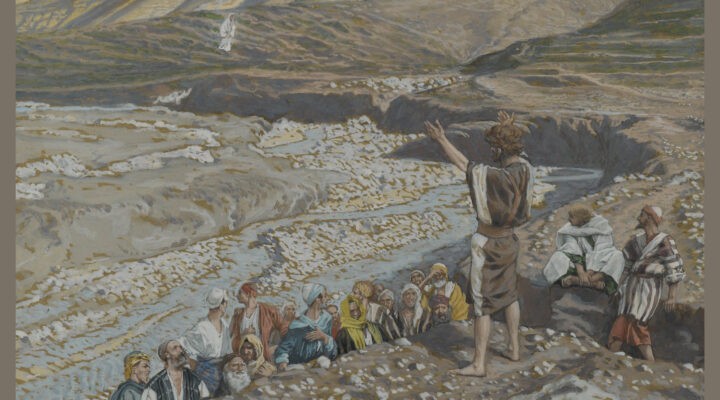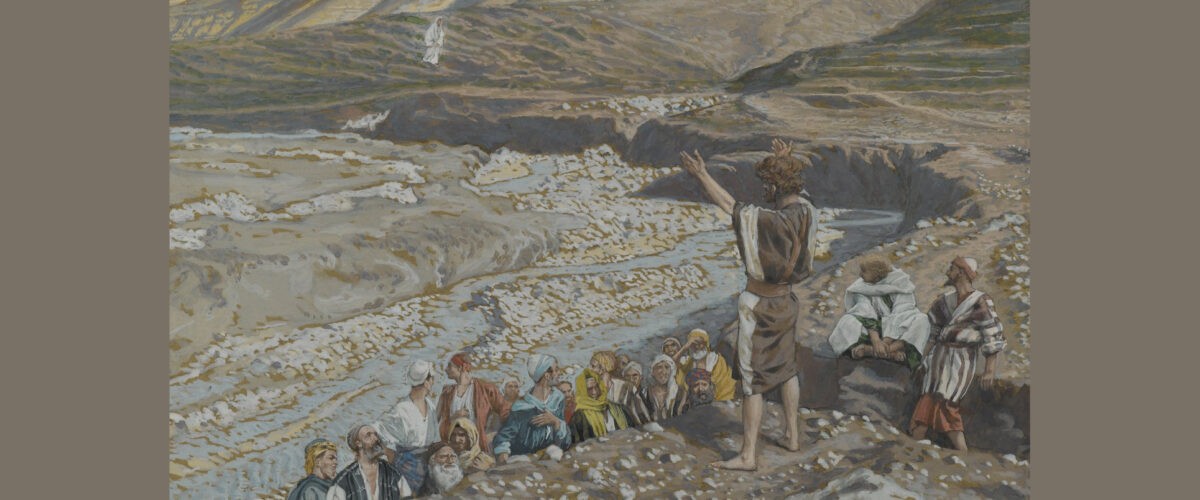During Senate hearings on Appeals Court Judge Ketanji Brown Jackson’s nomination to the U.S. Supreme Court, Senator Lindsey Graham, R-S.C., raised this faith-based inquiry: “I’m just asking this question because how important is your faith to you? On a scale of 1 to 10, how faithful would you say you are, in terms of religion?” Graham added: “You know, I go to church probably three times a year, so that speaks poorly of me. Or do you attend church regularly?”
Judge Jackson, the first African American woman to be nominated for the nation’s highest court, offered no response to the “scale of 1 to 10” test, instead noting that while her faith is “very important to her,” “there’s no religious test in the Constitution.”
That verbal exchange between senator and judge sent me back to John the Baptist and his response to the first century religio-political crowd who showed up to hear him: “Who warned you to flee from the wrath to come? Bear fruits worthy of repentance.” When evaluating a person’s faith, it’s best to start with the right questions.
“When evaluating a person’s faith, it’s best to start with the right questions.”
You have to love John the Baptist (or not), a prophet full of doom and promise, challenging or infuriating his listeners while packing the best rhetorical punch this side of the Sea of Galilee. “The crowds came out,” Luke’s Gospel says, when John trekked “the region around Jordan,” denouncing sin and sinners right and left. As John tells it, on God’s “scale of 1 to 10” we’re all a bunch of “ones,” and it’s time to set things right. The Baptizer could give you hell or scare it out of you.
John is a unique individual, then and now, with no ego or desire for “the things of this world.” He’s a desert hermit, not an urban impresario, in a line of Hebrew prophets from Isaiah and Ezekiel to Amos and Zephaniah. John challenges a culture that claims to be self-aware, compassionate and divinely chosen, but ain’t necessarily so. (Sound familiar?)
Confronting the religious and political power brokers of the first and 21st centuries, John says: “Do not depend on Abrahamic Exceptionalism to determine your relationship with God. Repent of your recognized and unrecognized injustices or God just might create a new people from the very stones under your feet! But don’t even try to repent unless you’re willing to work it off through baptism and acts appropriate to justice, mercy and compassion.”
And Luke’s Gospel says some folks actually did that. They crowded into River Jordan with John, washed clean as a sign of repentance and a fresh start in an old world. Drying off, they ask, “So what would you have us to do?” The Baptizer’s instructions remain abidingly concrete, direct and demanding: “If you have two coats, give one to the person who has none” and “Whoever has food must do likewise.”
“The politics of religion and the religion of politics continue 21 centuries later.”
Luke says John’s message was so powerful, “even tax collectors came to be baptized.” I love that line, especially as April 15 draws nigh. When the first century CPAs asked, “Teacher, what should we do?” John admonished: “Collect no more than the amount prescribed for you.” Even soldiers asked, “What should we do?” and John’s sense of justice is strikingly pragmatic: “Do not extort money from anyone by threats or false accusation.”
Don’t we wish Vladimir Putin had heeded those words 2,000 years later?
The Baptizer’s message soon took on political implications. Indeed, he shouts that inward/outward transformation is so essential that God is sending another messenger who will baptize, not just with water but “the Holy Spirit and with fire.” When word of that prophecy got out, Herod Antipas, the local political operative, got really scared and certainly more paranoid.
In Antiquities of the Jews, written 93-94 CE, the Jewish historian Flavius Josephus describes the Baptist’s political impact: “Now many people came in crowds to him, for they were greatly moved by his words. Herod, who feared that the great influence John had over the masses might put them into his power and enable him to raise a rebellion (for they seemed ready to do anything he should advise), thought it best to put him to death. In this way, he might prevent any mischief John might cause, and not bring himself into difficulties by sparing a man who might make him repent of it when it would be too late.”
John was imprisoned and executed. Today, the Ukrainians know whereof Josephus spoke.
The politics of religion and the religion of politics continue 21 centuries later, so it’s no surprise that the R-S.C. senator would ask the Supreme Court nominee to assess a 1 to 10 religious scorecard about her faith. He acknowledged the question was something of a payback religio-cultural question and commentary on Democrats raising questions of recent Republican judicial nominees. Perhaps he thought it appropriate because our culture seems obsessed with scales of 1 to 10 for evaluating physicians, lawyers, hospitals, auto repair shops, restaurants, media outlets, movies, politicians, teachers, educational institutions, airlines, hotels, Amazon, Facebook, Twitter, and toilet tissue, ad nauseum.
Still, I suspect John the Baptist would find Graham’s approach problematic. First because for John, mere religious participation could mask the continuing need for repentance. John might have preferred Maya Angelou’s method of religious evaluation. When someone declared “I’m a Christian,” Angelou would ask, “Already?”
“When someone declared ‘I’m a Christian,’ Angelou would ask, ‘Already?’”
Second, when the senator admitted he only attends services “three times a year,” he forfeited his opportunity to require a “scale of 1 to 10” from anyone else. Instead, a repentant Lindsey Graham might have gone all John the Baptist on the Senate, confessing: “Judge Jackson, I started to have you evaluate your faith on a 1 to 10 scale, but since I attend church so infrequently, I’d better keep my mouth shut,” at least until I’ve “shown forth fruits worthy of repentance.”
Likewise, if the U.S. Senate (and the rest of Capitol Hill), really valued religious faith, religious liberty and the First Amendment, Judge Jackson might have had the freedom to go all John the Baptist herself, responding: “Yes, Sen. Graham, I am a follower of Jesus, a religion grounded in redemption, humility and justice. My calling is to practice that kind of faith. God is the one with the scale.”

Bill Leonard
Bill Leonard is founding dean and the James and Marilyn Dunn professor of Baptist studies and church history emeritus at Wake Forest University School of Divinity in Winston-Salem, N.C. He is the author or editor of 25 books. A native Texan, he lives in Winston-Salem with his wife, Candyce, and their daughter, Stephanie.
Related articles:
Senator criticized for asking nominee, under oath, whether he ‘believes in God’
Barrett nomination renews debate over Constitution’s ‘no religious test’ rule


